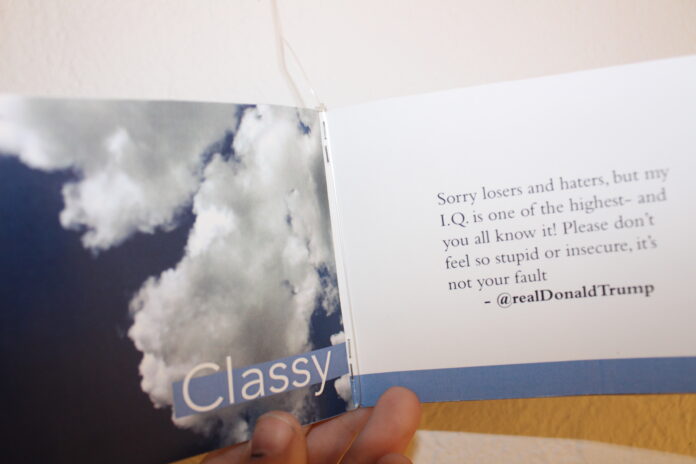
In a world where sports culture is being instructed to “stick to sports,” one might not expect to engage in a political spectacle at one of America’s biggest sporting events of the year. And yet, when President Donald Trump made a public appearance during Game 5 of the MLB World Series on Sunday, the crowd promptly booed him.
Booing was followed by chants of “lock him up” — a reversal of the 2016 Trump campaign attack on Hillary Clinton — and “impeach Trump.”
Then, six days later, Trump was booed at another sporting event, this time at a UFC match.
Trump has entered the building lol #UFC244 #UFC #TRUMP pic.twitter.com/DhQqiU8Z18
— Joe Mastoloni (@JJMast1) November 3, 2019
While some conservative writers may have their own opinions on the impact of booing a sitting president, the conversation mirrors a similar one surrounding the concept of “civility.“
Historian Howard Zinn is attributed as having written, “dissent is the highest form of patriotism.” A functioning democracy requires citizens who care enough about their country to want to improve it to be the best possible version of itself. It also requires those same citizens to voice their opinions in order to enact these desired improvements.
Trump isn’t just a guy who isn’t liked by some people. He’s the President of the United States. Every one of his actions directly influences the lives of people who live in this country. When the president’s actions are harmful to a subset of the population, it is absolutely appropriate for anyone who feels so inclined to verbally signal their disapproval.
When the president does not make many public appearances, it also makes using those opportunities all the more prescient.
Baseball and fighting fans do not have any real, systemic power over the President of the United States. Even if the president has hurt feelings over the situation, those shouldn’t feelings be prioritized above the lived experiences of people hurt by his policies.
Some argue against booing a sitting president on the grounds that it makes America look weak to foreign leaders. However, those people fundamentally misunderstand the role of the president in this country. Our democracy makes it so that the president doesn’t necessarily represent the United States so much as he does the people within that country.
If the people who live in America don’t like Trump in 2019, that’s not a reflection of anything besides public opinion shifting since the last election.
In fact, it should speak to a major shift in public consciousness that spaces like sports arenas can collectivize on the spot against Trump. MLB fan demographics are more male than any other major sports franchise, and also 83% white; 50% of fans are 55 or older. These are key demographics that voted for Trump in the 2016 election. While data about UFC fans is not as widely known, one can assume that any group that enjoys violence for entertainment purposes probably leans male. They also lean older, as well.
All of these booings occurred in spaces in which Trump could have reasonably been expected to have been popular. That same trend continued with Nov. 5’s down ballot election in Kentucky and Virginia. In VA, a sweep of the state legislature means almost no opposition to progressive measures on healthcare and gun reform. Meanwhile, Kentucky elected Trump in 2016 by a difference of 30 points – the fact that the current governor’s race is too close to call shows that Trump’s party blew a race that should have been a gimme.
Our whole country is booing Trump: some with their voices, and others with their votes.
Free speech is often misrepresented during bad-faith arguments arguing for tolerance towards bigotry. But free speech is at its best when exercised against the government. And we all know what’s been said on the subject of dissent.
This week, lean into the spirit of dissent. Remember who runs this country, and who will inherit its government. It’s us.
For comments/questions about this story, email editor@thewhitonline.com or tweet @TheWhitOnline.





